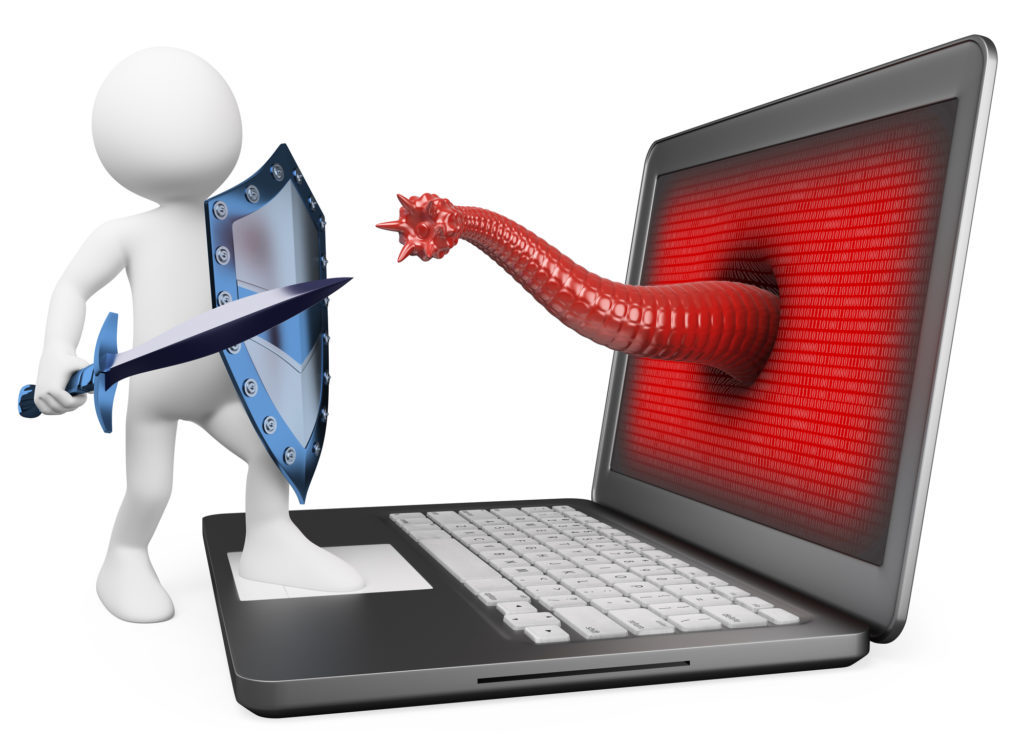Computers are everywhere! So are the smartphones. And for them to work, we need the internet. ISPs are competing for business by offering attractive subscription packages such as Xfinity Triple Play. Since, technology also involves tenacious threats from the hackers across the globe, protecting the computer is crucial. Generally, we all know that malware attacks the system via the key pathway, the internet. The problem is that usually people don’t have spare time or are perhaps not interested in securing their computers. The main reason behind these attitudes is the lack of understanding about computer security. This subject is explained in a very confusing and complicated manner online. Therefore, people give up on the idea of taking measures to secure their computers.
Worry no more!
Malware Protection Tips
Protect Your Computer with these Simple, Easy, and Effective Steps
Well, let’s simplify this complex knowledge for you! There are tons of ways to protect your computer and remove malware. One single method is not really enough to make sure that your computer is secure. More the layers of defense, harder will it be for hackers to access your computer. Following are simple yet crucial protection steps to secure your computer. Also, read about the Malicious apps that you might have accidentally or unknowingly installed in your phones and delete them ASAP!!
- Install an Antivirus Software
Running any device without an effective Antivirus program is not a good idea. An antivirus software helps you protect your computer from unauthorized codes. Also, it protects your system from software programs, which may cause a threat to it. There are various unauthorized software programs, which may include viruses, Trojans, keyloggers, etc. When your system is corrupted with any of the aforementioned software programs, the processing speed reduces. Your system fails to work smoothly. This can even access your personal information and delete your important files. If your system is free of any viruses, you still need to install an efficient antivirus software in order to prevent any further virus attacks.
Antivirus software programs play a vital role in real-time protection. It detects malware threats and keeps the information in your computer safe. Advanced antivirus programs facilitate you with automatic updates and make your computer capable of protecting itself from new versions/forms of viruses. They block the pop-ups, protect your email, and your system from identity theft.
- Install Firewall
A firewall acts like a security guard. Let’s enlighten you about the two types of firewalls. One is the software firewall and the other is the hardware firewall. Both serve different yet similar purposes. When it comes to the computer security, the firewall is the first stage/step. It manages to create a barrier between any unauthorized software (that could be entering via the internet) and your computer. For the computers (which are used at home) firewalls should be turned on permanently. It will help you be readily aware of any unauthorized effort to access your system.
- Install an Anti-Spyware Software
Spyware collects your personal information or the information of an organization without any approval. Once they extract this information, it is redirected to the third party websites. Spywares anti-virus in a way that it is really hard to remove them. Anti-Spyware software programs are dedicated solely to combat spyware. They are similar in mechanism to the antivirus software programs. They also offer real-time protection. They scan the incoming information, detect the threats, and block them. Some antivirus programs come with a built-in spyware.
- Check Your Browser’s Security Settings
Browsers have their own privacy and security settings, which can be reviewed and reset according to your desired level. Recent versions of browsers allow you to control your privacy. You can change the settings to prohibit them track your search history and activities on the web. The incognito modes and private search tools within the browsers enable you from keeping even your searches secure.
- Use Secure and Complex Passwords
The first layer of defense, when it comes to your security and privacy is the password! Keep a password that is high in strength and complexity. Do not have predictable passwords, for instance, your date of birth, your birthplace, and so on. Complex passwords are difficult for hackers to figure out or break. Use a minimum length of eight characters and consider having a combination of letters (upper and lower case, both) numbers, special characters, and so on.
Hackers usually use some tools in order to break down easy passwords. They do it in a matter of a few minutes. Studies show that a 6-charactered password (lower case letters) breaks in a matter of 6 minutes!
Consider having unique and unpredictable passwords. Use your creative thinking and come up with your own complex passwords. Good luck with the security of your computer!



